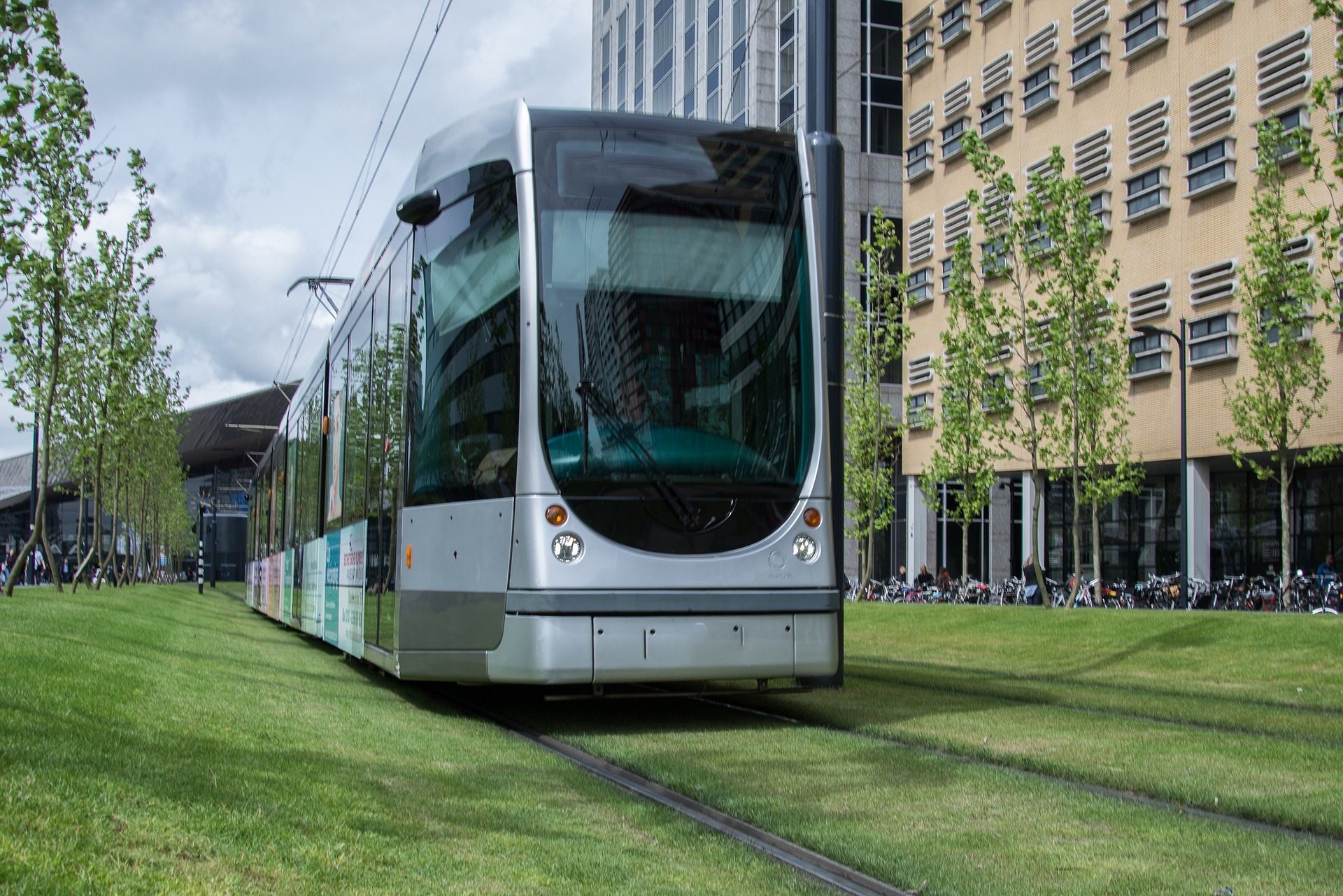25% of Qatar’s public bus network will be powered by electricity during the 2022 FIFA World Cup.
Qatar signed contracts worth an estimated QR6bn on Monday to start the implementation of its eco-friendly transportation services plan.
The deals were signed in the presence of the country’s Prime Minister and Interior Minister Khalid al-Thani, marking a new beginning for Qatar’s commitment to the environment.
In a tweet, al-Thani said “this step is an important shift towards a cleaner environment and a low-carbon economy, embodying the goals of 2030.”
خطونا اليوم خطوة تاريخية بالتوقيع على عقود التحول إلى المركبات الصديقة للبيئة بكلفة ٦ مليارات ريال. هذه الخطوة نقلة مهمة نحو بيئة أنظف واقتصاد منخفض الكربون تجسيدا لأهداف ٢٠٣٠ وسيكون أول تطبيقاتها في ٢٠٢٢ تحقيقا لوعد سمو الأمير @TamimBinHamad بتنظيم أول مونديال محايد للكربون. pic.twitter.com/VRDOxRbzBq
— خالد بن خليفة آل ثاني (@KBKAlThani) November 30, 2020
The latest sustainability efforts come within the framework of implementing the Electric Vehicle Strategy MOTC, which is a key part of the country’s public transportation plan 2030. A decade from now, Qatar plans to turn all of its public transportation into fully environmentally-friendly vehicles.
Jassim Al-Sulaiti, transportation minister, said that the latest steps would enhance the country’s ranking as a pioneer in the area of clean energy mass transit, becoming one of the very first nations in the world to have an integrated electric bus system.
FIFA World Cup 2022 Legacy
Al-Sulaiti added that Qatar’s latest sustainability efforts would also boost the potential value of the 2022 World Cup legacy. This, he noted, demonstrates the country’s commitment to deploying global clean energy solutions on transportation and hosting an “exceptional, eco-friendly, carbon-neutral championship.”
In terms of the contracts, Mawaslat (Karwa) signed two with Chinese manufacturing companies to purchase buses that will be put in service during the FIFA World Cup 2022.

The first contract was signed with Yutong, a Chinese manufacturer of commercial vehicles, and includes 741 electric buses and 261 diesel buses.
Mowasalat’s second contract was signed with Higer, another Chinese bus manufacturer, to purchase 1815 diesel buses. These buses are powered by the new eco-friendly fuel.
Consequently, the Supreme Committee for Delivery and Legacy (SC) signed a contract worth QR3.7 billion with Karwa to provide operational services for the electric buses and their facilities, in addition to providing the smart technology and techniques to manage the bus fleet.
Read also: Qatar entities go green as country embraces Sustainability Week.
Hassan Al Thawadi, Secretary-General of the SC, said during the signing ceremony that the gradual and full transformation to an electric bus system is “a significant development with regards to transportation strategies for the FIFA World Cup 2022.” He added that the SC aims to provide sustainable, economical, eco-friendly transit solutions during the World Cup.
“We are currently purchasing 3000 new buses for the FIFA World Cup 2022™, which will then be added to the company’s fleet to build a legacy for the public and school transport. They also form an integral part of our transport fleet for major events that will be hosted by the State of Qatar in the future,” said Fahad Saad Al-Qahtani, Mowasalat (Karwa) CEO.
By the time of the tournament, Qatar’s public transportation will be 25% electrical and environmentally friendly.
More local production

The drive to become more eco-friendly isn’t only based on importing vehicles, Qatar Free Zone Authority signed a multilateral framework agreement with Mowasalat and Yutong to manufacture electric buses (e-buses) in Umm AlHoul Free Zone.
As part of the government’s wider localisation drive, parts for the e-buses will be manufactured by Qatari firms.
Read also: Free eco-friendly electric car charging ports to arrive in Qatar
“Besides helping to anchor an electric vehicle auto cluster, this project will provide opportunities to local businesses through the localization of contractors, service providers and suppliers,” said Ahmad Al-Sayed, Minister of State and Chairman of QFZA.
“The production of E-buses for the national market showcases the attractive economic climate for international investors who can deliver what our market requires. The plans to export the e-buses underlines QFZ’s world-class logistics operations that connect us to key markets across the globe.”
Furthermore, Ashghal also signed 11 new contracts worth QAR two billion for building bus stations and bus depots, as part of the public bus infrastructure program.
“The new bus stations and bus depots program implemented by the Buildings Projects Department of Ashghal includes building 8 main bus stations in West Bay, Musheireb, Industrial Area, Al Soudan, Al Gharrafa, Education City, Al Wakra and Lusail, with an average capacity of 25 buses in each of the stations,” said the Ministry of Transport and Communications in a statement.
The contracts include 4 huge bus depots in Lusail, Al Rayyan, Industrial Area and Al Wakra. Ashghal is also set to build 2700 air-conditioned bus stops on all major roads.
By 2030, Qatar is expected to have a fullt electronic public transit.
This will be achieved by shifting public transportation, such as public buses, government school buses, and Doha Metro feeder buses, to electric power.
This, along with other sustainability strategies, is hoped to reduce harmful carbon emissions from business and make the country more eco-friendly.
Follow Doha News on Twitter, Instagram, Facebook and Youtube







